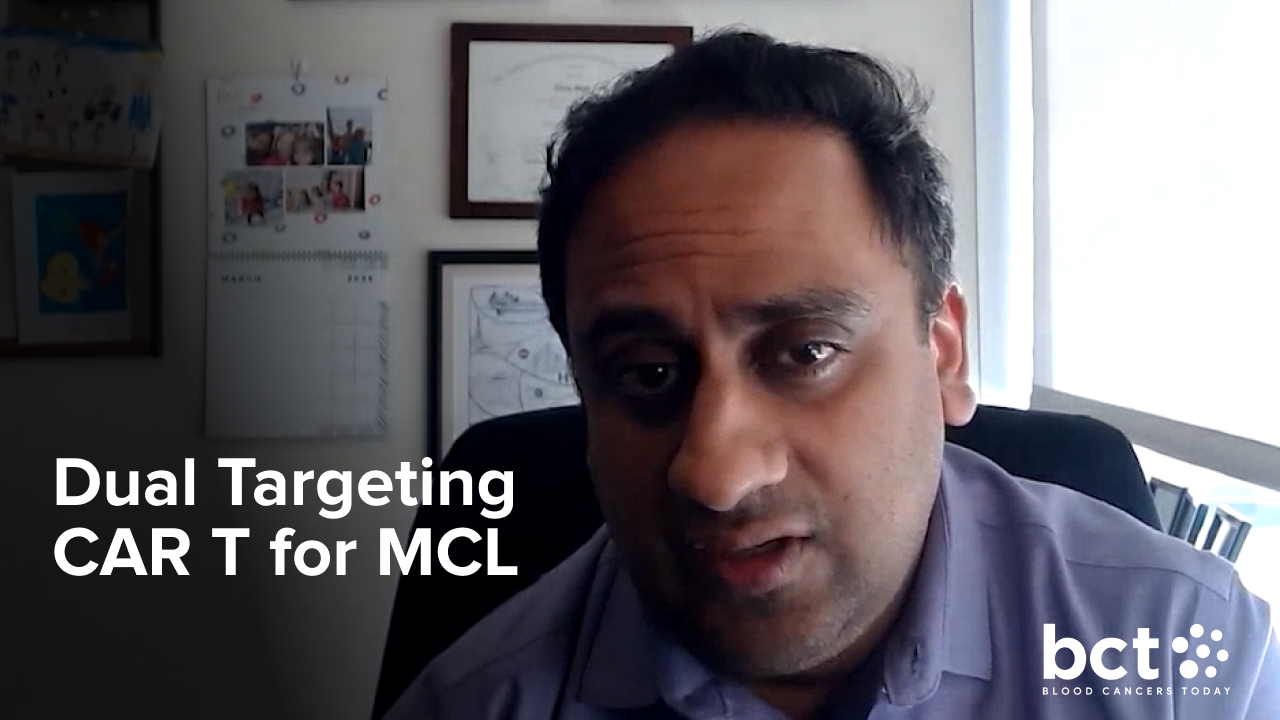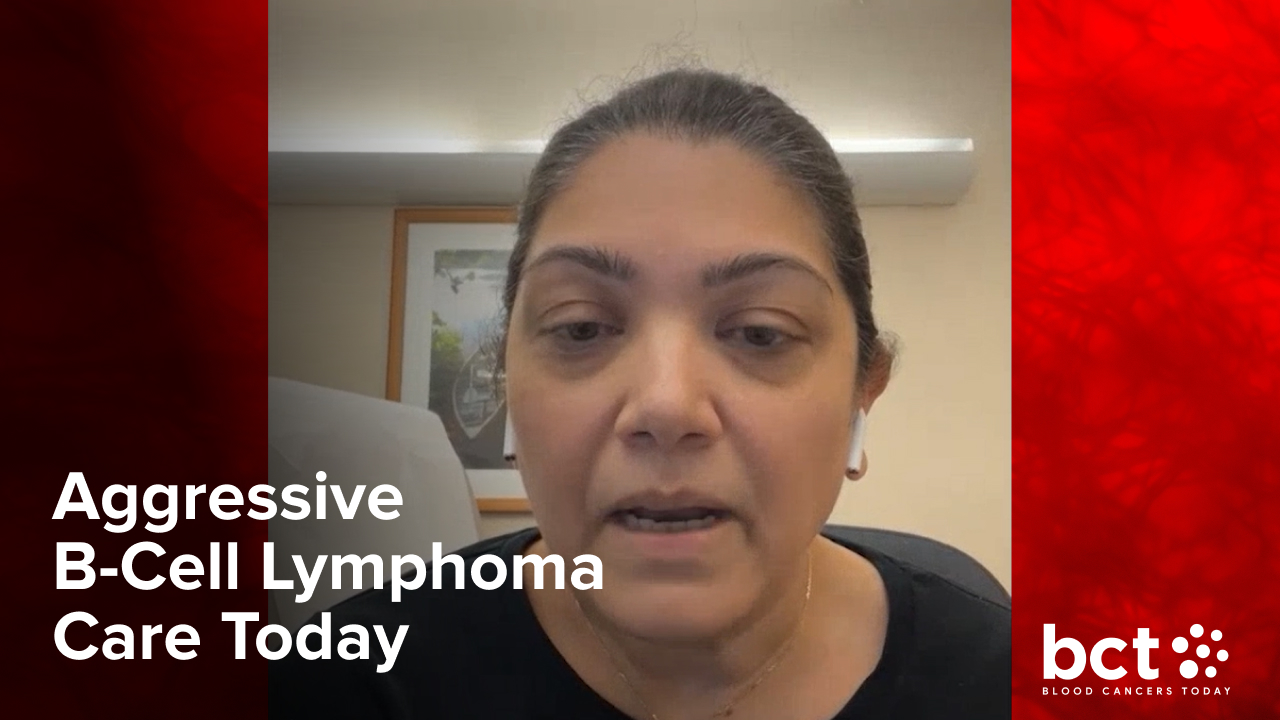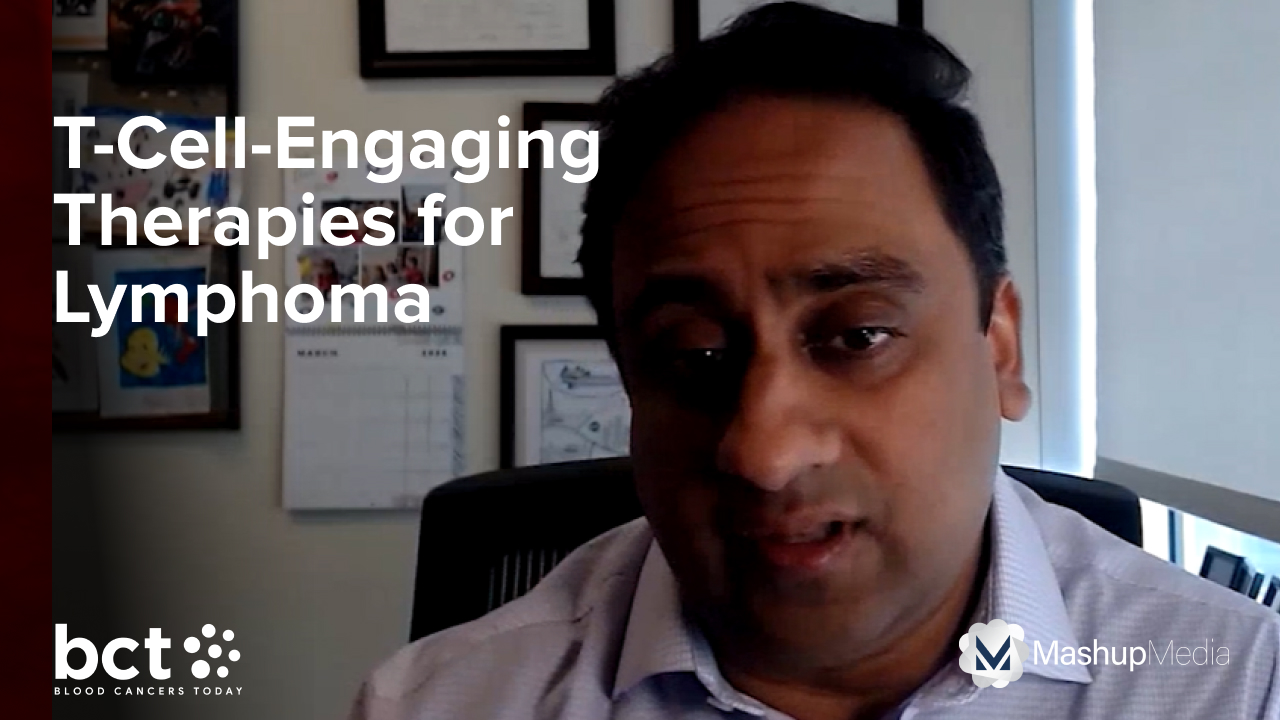
Nikhil Munshi, MD, had a conversation with Orsi Giricz, PhD, from LLS, to discuss the recent approval of Abecma and his role in a phase II study of the drug.
Dr. Giricz: On March 26th, 2021, the the Food and Drug Administration (FDA) approved Abecma (idecabtagene vicleucel; ide-cel) as the first B-cell maturation antigen (BCMA)-directed chimeric antigen receptor (CAR) T cell immunotherapy for the treatment of adult patients with relapsed or refractory multiple myeloma (RRMM) after four or more prior lines of therapy, including an immunomodulatory agent, a proteasome inhibitor, and an anti-CD38 monoclonal antibody. The FDA approval of Abecma is based on key data from the pivotal Phase II KarMMa trial published recently in the prestigious New England Journal of Medicine. You had a key role in the study and are lead author of that paper.
Would you please tell us about the background and framework of the study?
Dr. Munshi: The study was performed with the background that outcomes of patients with triple class exposed (immunomodulatory agent, proteasome inhibitor, and anti-CD38 antibody) RRMM remain inadequate. Despite the availability of a number of newer therapeutic options, the proportion of patients with RRMM achieving a response is small and their survival is limited. Thus, investigating further effective therapies for this population has been an unmet need. Importantly, B-cell maturation antigen (BCMA) has been recognized as a unique target with specific cell surface expression only on myeloma cells and normal plasma cells and played an important role in supporting myeloma cell growth and survival. With this background there has been a significant investigation into utilizing BCMA as a potential therapeutic target. In fact, Blenrep (Belantamab mafodotin), an antibody-drug conjugate targeting BCMA, is already approved for treatment of RRMM. Utilization of BCMA in chimeric antigen receptor (CAR) T-cell therapy has been investigated in a smaller pilot study in patients with RRMM showing significant activity with a tolerable toxicity profile. This initial encouraging result led to the larger pivotal KarMMa study investigating idecabtagene vicleucel (ide-cel, bb2121), a BCMA-targeted CAR T-cell therapy, in patients with RRMM.
What was your role in the ide-cel phase 2 study and what did the study involve (patient population, process etc.)?
As one of the lead investigators on this study, we examined both overall response rate (ORR) and complete response (CR) rate as well as various survival outcomes following ide-cel therapy. The patients studied had three or more prior lines of therapy that included exposure to the three standard classes of agents (immunomodulatory agent, proteasome inhibitor, and anti-CD38 antibody) and were refractory to their previous line of therapy. The generation of the therapeutic product, ide-cel, first requires collection of patient immune cells, which are genetically modified to introduce an antibody molecule that will be presented on the surface of the T cells to help recognize and specifically target the myeloma cells, and two other components, 4-1-BB and CD3-zeta, which help more robust immune response as well as CAR T-cell proliferation. The production of CAR T cells takes around four weeks and it was successful in 99% of the patients. During these four weeks, if required, a bridging therapy was allowed, which was received by 88% of patients, suggesting the aggressive nature of the disease. Once the cells are ready, patients receive standard-dose chemotherapy with fludarabine and cyclophosphamide for three days as lymphodepletion and then the CAR T cells are infused, and response is measured.
Can you discuss your results/findings/conclusions?
Overall, 128 patients have been treated in this study. The patients had very aggressive disease, having previously received a median of six lines of therapy, one-third of patients with high-risk disease, and mostly (84%) refractory to all three major MM drug classes. In the whole patient population the ORR was 73%, while at the target dose level of 450X106 CAR T cells infused ORR was 82%. Close to one-third of patients achieved CR. Responses were also very quick, with median time to initial response of one month and CR of 2.8 months. Responses were also deep, with 26% of patients achieving CR with minimal residual disease (MRD) negativity, 40% MRD negativity for the whole cohort, and 48% MRD negativity at the target dose level. An important observation was that the responses were observed across all various subgroups, including age, prior treatments, risk features, and triple- or penta-refractory nature of the disease. Progression-free survival (PFS) in this study was 8.8 months with significantly higher PFS of over 20 months in the patients achieving CR. Overall survival was 19.3 months, even with limited data available at the present time. In general, toxicities were manageable. As expected, most of the patients (84%) developed cytokine release syndrome (CRS); however, of these patients, only 6% had grade 3 CRS. The occurrence of CRS was quick and predictable with a median time of its occurrence of one day. Neurotoxicity was observed in 18% of patients and majority were grade 1/2. Both CRS and neurotoxicity were managed with therapeutic intervention that included tocilizumab and steroids. Cytopenia was frequent and involved both neutropenia as well as thrombocytopenia. Cytopenias are mainly due to lymphodepletion and not dose-related. Infections (including bacterial, viral, and fungal) were common (69%) and also not dose-related.
Ida-cel has demonstrated frequent deep and durable responses in heavily pretreated highly RRMM in this pivotal KarMMa trial. The efficacy was highest at the target dose of 450×106 CAR T cells and the treatment was tolerable across the dose levels. These results provide ide-cel as an attractive option for treatment of triple-class exposed patients with RRMM.
This is not the first anti-BCMA medication approved, nor the first CAR T-cell therapeutic on the market, but it is the first CAR T-cell therapeutic for MM. We have seen CAR T do wonderful things for patients with leukemia and lymphoma in the last couple of years. Some categorize Kymriah (tisagenlecleucel) and Yescarta (axicabtagene ciloleucel) to be truly “game changing.” Can we expect Abecma to be revolutionary in the myeloma space? Will it make a big difference from current standards of care?
These results with ide-cel are extremely impressive for multiple reasons. First, it was investigated in a patient population where standard of care treatment would give no more than a 25% to 30% response rate and predicted PFS of around three months, and achieving MRD negativity is not considered possible. In this setting achieving over 80% response rate, sustained remission and up to one-third of patients getting MRD negativity raises our hope for patients with RRMM and provides a real possibility for its use at the earlier stages of the disease, where it can lead to long-term, disease-free survival. Second, unlike the current standard of care treatments, the CAR T-cell therapy is only administered once with no subsequent maintenance treatments. So the patients in this study were treatment-free for a prolonged period of time, improving patient quality of life. This is very different than any currently utilized therapies, including high-dose therapy, where a prolonged or indefinite duration maintenance treatment is utilized. Third, anti-BCMA CAR T-cell therapy is truly a targeted treatment as BCMA is only expressed on the myeloma cells and normal plasma cells. This limits any potential off-target side effects, providing benefits without having significant other toxicities.
Abecma, the first in class agent, will pave the way for a wide-spread utilization of immune-based therapies in myeloma and a combination approach will provide the opportunity to achieve a curative outcome in the near future.






 © 2025 Mashup Media, LLC, a Formedics Property. All Rights Reserved.
© 2025 Mashup Media, LLC, a Formedics Property. All Rights Reserved.